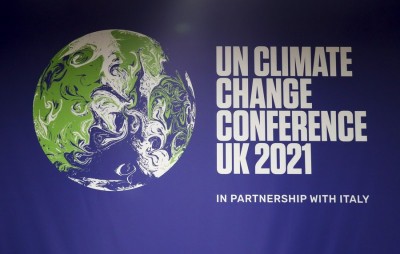
These were the views of climate experts and negotiators who participated in several international diplomatic meets, including the just concluded UN Climate Change Conference or COP26, chaired by the UK, in which nearly 200 nations pledged to increase climate ambition and take immediate action to help halve global emissions in the next decade and reach net-zero emissions by mid-century.
Responding to the Union Budget presented by Finance Minister Nirmala Sitharaman, WRI India Director, Climate Programme, Ulka Kelkar, said: "By referring to climate action as a sunrise sector and employment generator, the budget has sent an important signal to markets, financial institutions and the workforce.
"We now need the power of government incentives, aggregation and de-risking for clean energy to be complemented by standards for low-carbon materials, skilling for battery recycling, and consultative processes for green infrastructure projects."
Biomass pellets, energy efficient buildings, coal gasification and agro-forestry are just the start of the transition to a carbon-neutral economy. The upcoming green hydrogen mission and circular economy action plans can initiate a deep shift towards industrial de-carbonization, she said.
Vibhuti Garg, Energy Economist, Lead India, IEEFA, said while jargon terms such as energy transition, climate finance, inclusive growth, etc., were mentioned multiple times in the budget speech, the announcements look to have fallen short of promoting clean energy in an accelerated manner.
"At a macro level, increase in Capex will boost economic growth, however, not much additional budgetary support or tax incentives have been provided to clean energy both grid and off-grid, including solar rooftop, storage technologies and green hydrogen."
S.N. Tripathi, Member of Steering Committee of the National Clean Air Programme, said: "By fundamentally focusing on clean and sustainable development, the budget has focused on three major sectors -- transport, energy and agriculture with an aim to reduce both reductions in CO2 and air pollution emissions which augur well for clean air programs in the short term and achieving carbon neutrality in the long term."
Saying it was perhaps the first Union Budget to acknowledge climate action in its opening statement, Aarti Khosla, Director, Climate Trends, told IANS the budget seemed to acknowledge clean energy transition as a fundamental principle.
"There is mention of clean tech solutions, battery swapping policies, improving EV efficiency, finalising Rs 19,500 crore PLI scheme for solar as a way to move ahead on low carbon strategy."
"All of this needs to be placed properly in policy and regulation. The Finance Minister also mentioned explicitly that climate risk is among the strongest negative externalities. So far this has been a strong acknowledgement and case for climate action," she said.
She said the mention of green bonds as part of overall market borrowings is a good step to raise funds for projects earmarked as green infrastructure.
"Proceeds will be deployed in public sector projects which also reduce emissions."
Energy storage systems as the one critical technology which needs innovation, finance and regulation got attention in the budget. The Finance Minister also announced that storage will be included in the harmonised list of infrastructure thereby making sure that credit can be facilitated. This should mean cheaper finance for battery manufacturing, she added.
On green bonds, Madhav Pai, Executive Director, WRI India Ross Centre, said: "There is a need to create a pipeline of bankable projects that can be funded by green bonds. This is a great opportunity for Ministry of Housing and Urban Affairs to set up a project preparation facility around topics of water, sewerage, storm water, sanitation and transport."


.jpeg)

